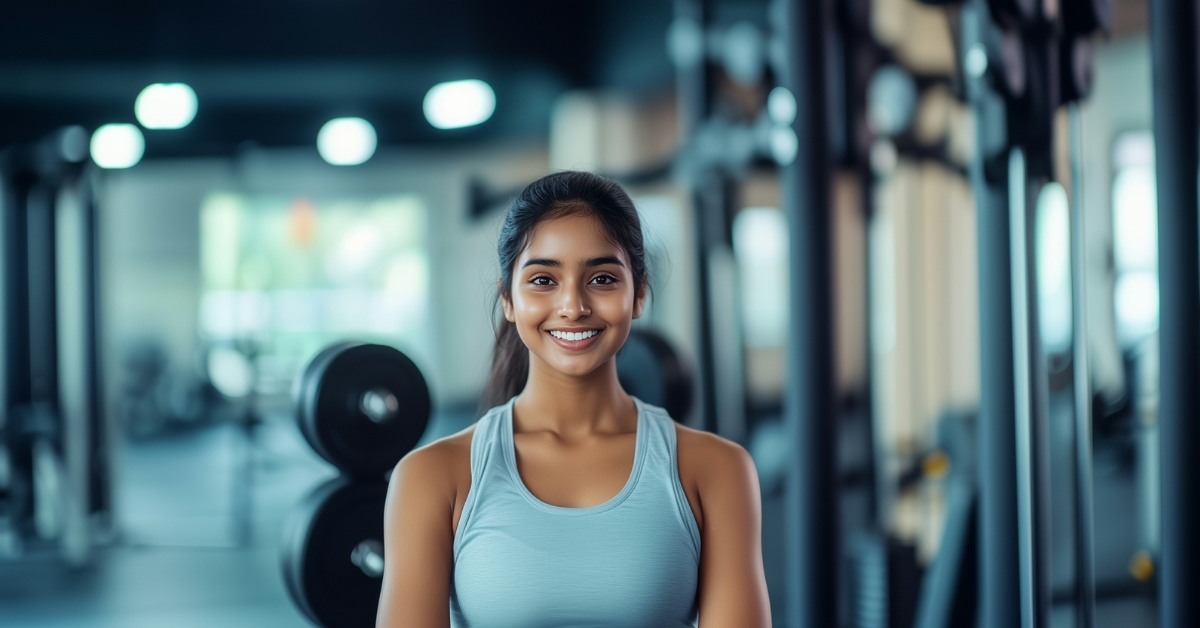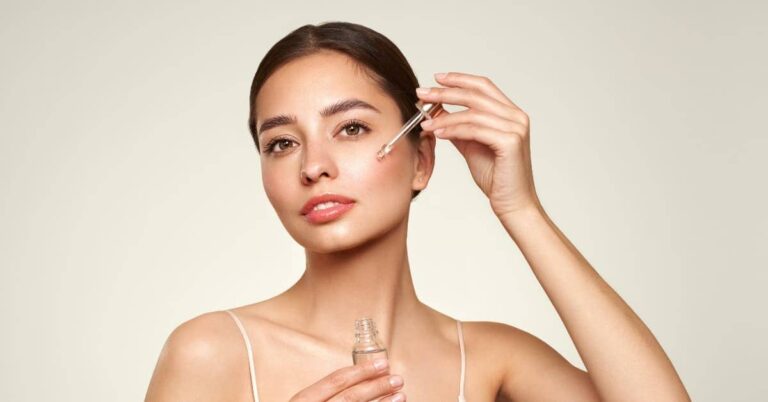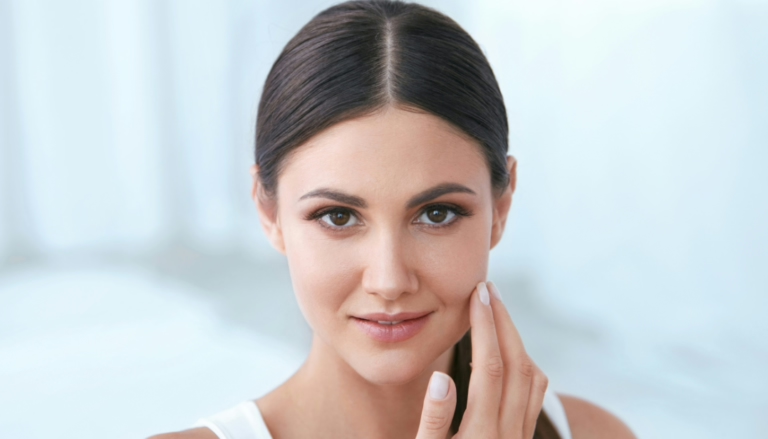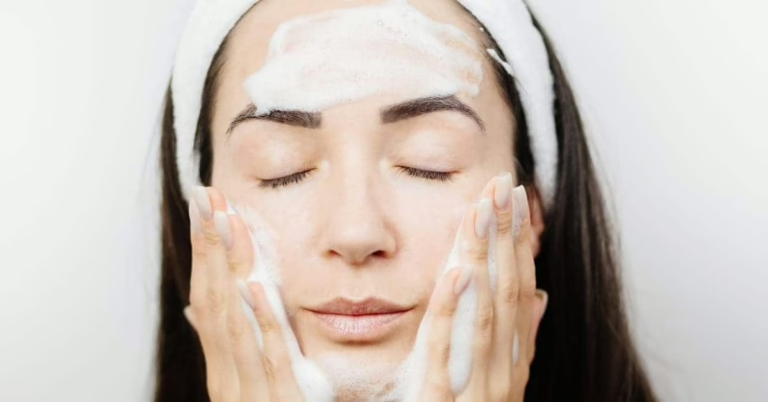9 Ways to Combat Excessive Sweating & Acne at the Gym
Exercising at the gym is a fantastic way to stay fit and healthy, but for many, it comes with the unwanted companions of excessive sweating and acne. These common issues can make your workout experience less enjoyable and impact your confidence. Fortunately, there are effective strategies to manage and reduce both sweating and acne, allowing you to focus on your fitness goals without worrying about your skin. In this guide, we’ll explore nine practical ways to combat excessive sweating and acne at the gym, ensuring you maintain clear and healthy skin while achieving your workout ambitions.
Maintain a Consistent Skincare Routine
A consistent skincare routine is crucial for managing both excessive sweating and acne. Regular cleansing before and after workouts helps remove sweat, dirt, and impurities that can clog pores and lead to breakouts. Start your day with a gentle cleanser to prepare your skin for the day ahead. After exercising, use a soothing cleanser to wash away sweat and bacteria. Incorporate a lightweight, non-comedogenic moisturizer to keep your skin balanced and hydrated without causing further irritation.
Why It Matters: Cleansing removes the buildup of sweat and bacteria that contribute to acne, while moisturizing maintains skin hydration, preventing it from becoming overly dry or oily.
Tips:
Use a mild, fragrance-free cleanser to avoid irritation.
Avoid harsh scrubbing, which can exacerbate acne.
Moisturize with products labeled as non-comedogenic to prevent clogged pores.
Step-by-Step Skincare Routine for Gym-Goers
Pre-Workout Cleanse: Start with a gentle cleanser to remove any impurities from your skin.
Hydrate: Apply a lightweight, non-comedogenic moisturizer to keep your skin hydrated.
Post-Workout Cleanse: Use a soothing cleanser immediately after exercising to remove sweat and bacteria.
Treat: Apply any acne treatment products if necessary.
Moisturize Again: Reapply a light moisturizer to maintain skin balance.
Choose the Right Workout Attire
The clothing you wear to the gym plays a significant role in managing sweat and preventing acne. Opt for breathable, moisture-wicking fabrics like cotton, bamboo, or specialized technical blends. These materials help keep sweat away from your skin, reducing the likelihood of clogged pores and irritation. Additionally, loose-fitting clothes promote better air circulation, allowing your skin to stay cool and dry during intense workouts.
Benefits:
Reduces sweat buildup on the skin.
Prevents friction and irritation caused by tight clothing.
Enhances comfort, allowing for better performance.
Tips:
Avoid synthetic fabrics that trap heat and moisture.
Change out of sweaty clothes promptly after your workout.
Consider investing in high-quality, moisture-wicking gym wear for optimal results.
Selecting Fabrics That Promote Skin Health
When choosing workout attire, consider the following fabric options:
Cotton: Soft and breathable, ideal for low-intensity workouts.
Bamboo: Naturally moisture-wicking and antibacterial, perfect for sensitive skin.
Technical Blends: Engineered fabrics that offer superior moisture management and durability for high-intensity activities.
Additional Tips:
Layer your clothing to manage sweat more effectively.
Wash gym clothes after each use to prevent bacteria buildup.
Stay Hydrated Inside and Out
Hydration is essential not only for your overall health but also for maintaining healthy skin. Drinking plenty of water helps regulate your body temperature and supports skin elasticity, reducing the chances of excessive sweating. Additionally, incorporating hydrating skincare products, such as serums and moisturizers with hyaluronic acid, can help keep your skin supple and less prone to breakouts.
Benefits:
Maintains optimal body temperature.
Enhances skin hydration and elasticity.
Supports the body’s natural detoxification processes.
Tips:
Carry a reusable water bottle to ensure you stay hydrated throughout your workout.
Set reminders to drink water at regular intervals.
Include hydrating foods like cucumbers, watermelon, and oranges in your diet.
Hydration Tips for Gym Enthusiasts
Before Workout: Drink a glass of water to start your session well-hydrated.
During Workout: Take small sips of water every 15-20 minutes.
After Workout: Replenish lost fluids with water or an electrolyte-rich drink.
Skincare Hydration: Use hydrating serums and moisturizers post-workout to maintain skin moisture levels.
Use Antiperspirants Effectively
Antiperspirants are designed to reduce sweating by blocking sweat glands. Choosing the right antiperspirant and applying it correctly can significantly decrease excessive sweating, especially during workouts. Look for clinical-strength options if you experience heavy sweating, and apply them to clean, dry skin for maximum effectiveness. Avoid overapplying, as this can lead to skin irritation.
Benefits:
Reduces the amount of sweat produced.
Minimizes moisture buildup on the skin.
Helps prevent sweat-related acne and irritation.
Tips:
Apply antiperspirant at night for longer-lasting effects.
Choose aluminum-free options if you have sensitive skin.
Reapply in the morning if necessary, especially before intense workouts.
Application Tips for Maximum Effectiveness
Clean Skin: Ensure your skin is clean and dry before application.
Even Application: Apply a thin, even layer to areas prone to sweating, such as underarms and chest.
Allow to Dry: Let the antiperspirant dry completely before dressing to prevent staining and irritation.
Consistency: Use it daily to maintain effectiveness and reduce overall sweating over time.
Incorporate Natural Acne-Fighting Ingredients
Natural ingredients can be highly effective in combating acne without the harsh side effects of some chemical treatments. Ingredients like tea tree oil, aloe vera, and salicylic acid offer antibacterial and anti-inflammatory properties that help reduce acne and soothe irritated skin. Integrating these ingredients into your skincare routine can provide a gentle yet powerful defense against breakouts.
Benefits:
Provides natural antibacterial action to reduce acne-causing bacteria.
Soothes inflammation and redness associated with pimples.
Promotes healing and reduces the appearance of acne scars.
Tips:
Perform a patch test before using new natural products to ensure you don’t have an allergic reaction.
Combine different natural ingredients for enhanced effectiveness.
Use products consistently to see noticeable improvements in your skin.
DIY Natural Treatments for Post-Workout Skin Care
Tea Tree Oil Toner: Mix a few drops of tea tree oil with distilled water and apply with a cotton pad to cleanse pores.
Aloe Vera Gel: Apply pure aloe vera gel to soothe and hydrate skin after workouts.
Honey and Cinnamon Mask: Combine honey and cinnamon to create a mask that fights bacteria and reduces inflammation. Leave on for 10-15 minutes before rinsing off.
Additional Tips:
Use natural exfoliants like oatmeal or ground almonds to gently remove dead skin cells.
Incorporate antioxidant-rich ingredients like green tea extract into your routine to protect against free radical damage.
Keep Your Gym Gear Clean
Maintaining clean gym gear is essential for preventing the buildup of bacteria that can cause acne and skin irritation. Regularly washing your workout clothes, towels, and any equipment you use can significantly reduce the risk of bacterial infections and breakouts. Even items like water bottles and gym bags can harbor bacteria, so it’s important to keep them sanitized.
Benefits:
Prevents bacterial growth that leads to acne and skin infections.
Reduces unpleasant odors and keeps your gear fresh.
Enhances the longevity of your workout clothing and equipment.
Tips:
Wash workout clothes after every use with a gentle detergent.
Disinfect gym equipment before and after use, especially shared items.
Replace old gym gear that no longer stays clean or fresh.
Effective Cleaning Practices for Gym Essentials
Workout Clothes: Use a separate laundry cycle for gym clothes to remove sweat and bacteria effectively.
Towels: Wash gym towels after each use in hot water to kill bacteria and remove sweat residues.
Equipment: Wipe down gym equipment with antibacterial wipes or sprays before and after use.
Gym Bags: Clean your gym bag regularly by wiping it down with disinfectant and allowing it to dry completely.
Additional Tips:
Use a laundry additive with antibacterial properties for an extra clean.
Ensure all gear is completely dry before storing to prevent mold and bacteria growth.
Invest in quick-drying, antimicrobial fabrics for your gym essentials.
Manage Stress Levels
Stress can exacerbate both sweating and acne by triggering hormonal changes that increase sweat production and oil secretion in the skin. Managing stress effectively can help keep these issues under control and improve your overall skin health. Incorporate stress-reduction techniques such as mindfulness, adequate rest, and balanced nutrition into your daily routine to support your body’s natural balance.
Benefits:
Reduces cortisol levels, which can decrease oil production and sweating.
Improves overall mental well-being, enhancing your workout performance.
Promotes better sleep, which is essential for skin repair and regeneration.
Tips:
Practice deep breathing exercises or meditation to calm your mind.
Ensure you get 7-9 hours of quality sleep each night.
Engage in activities you enjoy outside of the gym to relieve stress.]
Stress-Reduction Techniques for Better Skin
Deep Breathing: Spend a few minutes each day practicing deep breathing to reduce anxiety and stress.
Yoga: Incorporate yoga into your fitness routine to enhance flexibility and promote relaxation.
Regular Sleep Patterns: Maintain a consistent sleep schedule to support skin healing and overall health.
Balanced Nutrition: Eat a diet rich in whole foods, avoiding excessive caffeine and sugar, which can increase stress levels.
Additional Tips:
Take short breaks during your workout to stretch and relax.
Connect with friends or workout partners to build a supportive community.
Use journaling or other creative outlets to express and manage your emotions.
Optimize Your Diet for Healthy Skin
Your diet plays a significant role in your skin’s health and how your body manages sweat and acne. Consuming a balanced diet rich in vitamins, minerals, and antioxidants can support your skin’s resilience and reduce inflammation. Foods high in omega-3 fatty acids, such as salmon and walnuts, help maintain skin hydration and elasticity. Additionally, reducing the intake of processed foods and sugars can prevent insulin spikes that may contribute to acne.
Benefits:
Provides essential nutrients that support skin structure and function.
Reduces inflammation and oxidative stress, promoting clearer skin.
Balances hormone levels, which can decrease excessive sweating and acne.
Tips:
Incorporate a variety of colorful fruits and vegetables into your meals.
Include sources of lean protein and healthy fats to nourish your skin.
Limit sugary snacks and beverages that can trigger acne flare-ups.
Nutritional Tips to Support Skin Health
Leafy Greens: Spinach, kale, and other leafy greens are packed with vitamins A and C, which promote skin repair and collagen production.
Omega-3 Fatty Acids: Include foods like salmon, chia seeds, and flaxseeds to reduce inflammation and keep skin hydrated.
Antioxidant-Rich Foods: Berries, nuts, and dark chocolate help protect your skin from free radical damage.
Hydrating Foods: Cucumbers, watermelon, and oranges provide additional hydration and support skin elasticity.
Probiotics: Yogurt, kefir, and fermented foods promote gut health, which can positively impact your skin.
Additional Tips:
Stay mindful of portion sizes to maintain a healthy weight, which can influence hormone levels.
Drink green tea for its antioxidant and anti-inflammatory properties.
Avoid excessive alcohol consumption, which can dehydrate the skin and exacerbate acne.
Consult a Dermatologist for Personalized Advice
While over-the-counter products and lifestyle changes can significantly improve sweating and acne, consulting a dermatologist can provide personalized solutions tailored to your specific needs. A dermatologist can offer professional treatments such as prescription medications, laser therapy, or specialized skincare regimens that address persistent or severe skin issues. Seeking expert advice ensures that you receive the most effective and safe treatments for your skin condition.
Benefits:
Access to advanced treatments and professional guidance.
Personalized skincare plans based on your unique skin type and concerns.
Early detection and treatment of potential skin issues before they worsen.
Tips:
Schedule a consultation if you experience persistent acne or excessive sweating despite following basic management strategies.
Prepare a list of your symptoms, skincare routine, and any products you’re using to discuss with your dermatologist.
Follow your dermatologist’s recommendations consistently for the best results.
When and How to Seek Professional Help
Recognizing Signs: If your acne is severe, persistent, or causing significant emotional distress, it’s time to seek professional help. Similarly, if excessive sweating (hyperhidrosis) interferes with your daily activities, a dermatologist can assist.
Scheduling an Appointment: Choose a reputable dermatologist and schedule an initial consultation to discuss your concerns.
What to Expect: During the consultation, the dermatologist will assess your skin, discuss your medical history, and recommend appropriate treatments tailored to your needs.
Following Up: Adhere to the treatment plan and attend follow-up appointments to monitor your progress and make any necessary adjustments.
Additional Tips:
Don’t hesitate to ask questions about your treatment options and expected outcomes.
Be honest about your skincare routine and any over-the-counter products you’re using.
Consider getting a second opinion if you’re unsure about the recommended treatments.
Wrapping Up and Next Steps
Managing excessive sweating and acne at the gym doesn’t have to be a daunting task. By implementing these nine strategies, you can effectively reduce sweat and prevent breakouts, ensuring your workouts are both enjoyable and beneficial for your skin health. From maintaining a consistent skincare routine and choosing the right workout attire to staying hydrated and consulting a dermatologist, each step plays a vital role in achieving clear and healthy skin.
Remember, consistency is key. It may take some time to see noticeable improvements, so stay patient and committed to your skincare and fitness routines. By taking proactive measures, you can confidently pursue your fitness goals without the worry of excessive sweating and acne holding you back.
Ready to take control of your skin health and enjoy your gym sessions without the hassle of excessive sweating and acne? Start incorporating these strategies into your routine today and witness the positive changes in your skin and overall well-being. Your path to clearer, healthier skin is just a few steps away—embrace these tips and elevate your fitness journey with confidence!







